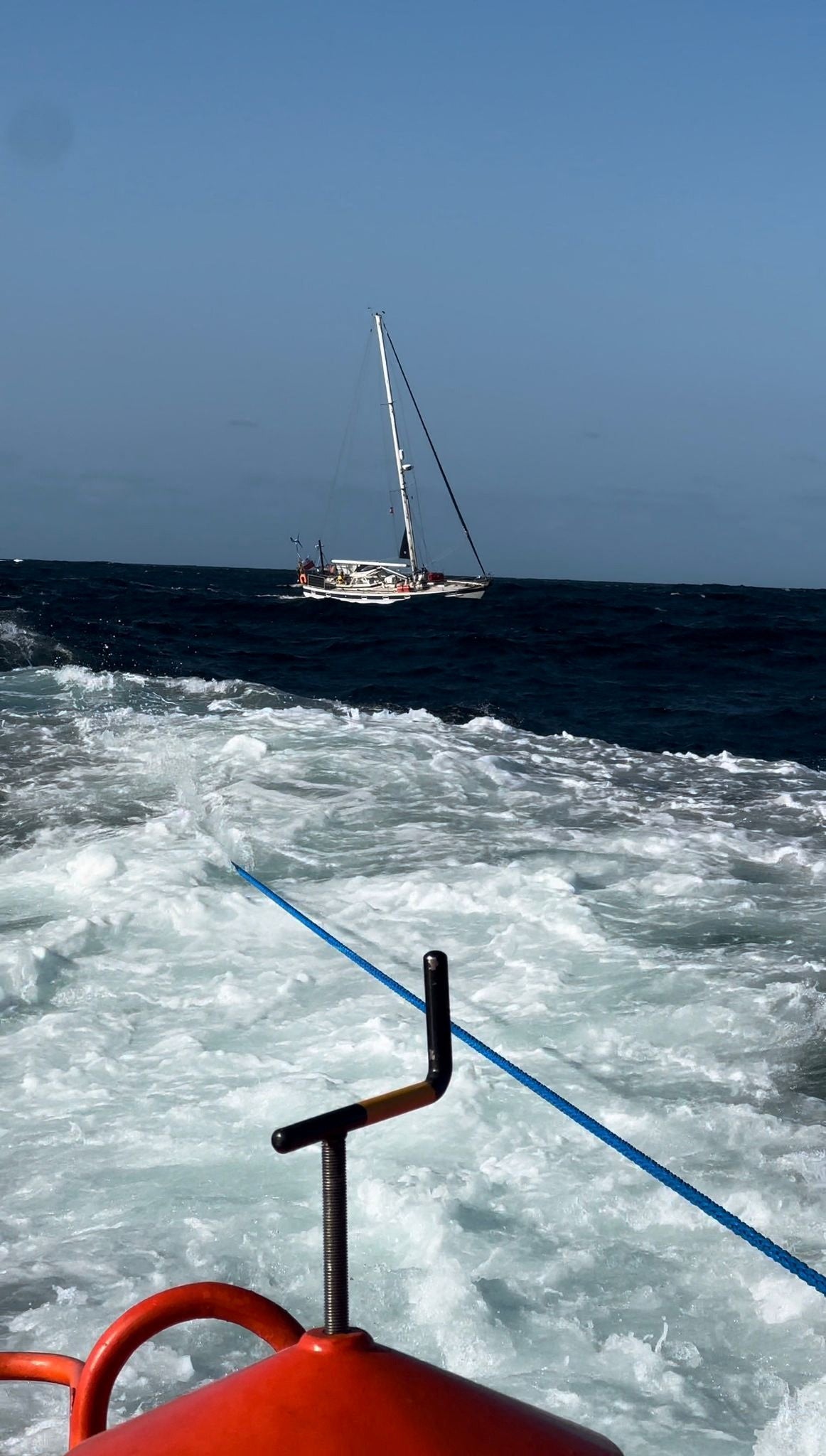Orca pod rams yacht in latest killer whale attack in Spain
Wim Vandenhende and Dana Huens recall the “scary” orcas, which repeatedly bashed their boat
Your support helps us to tell the story
From reproductive rights to climate change to Big Tech, The Independent is on the ground when the story is developing. Whether it's investigating the financials of Elon Musk's pro-Trump PAC or producing our latest documentary, 'The A Word', which shines a light on the American women fighting for reproductive rights, we know how important it is to parse out the facts from the messaging.
At such a critical moment in US history, we need reporters on the ground. Your donation allows us to keep sending journalists to speak to both sides of the story.
The Independent is trusted by Americans across the entire political spectrum. And unlike many other quality news outlets, we choose not to lock Americans out of our reporting and analysis with paywalls. We believe quality journalism should be available to everyone, paid for by those who can afford it.
Your support makes all the difference.A Belgian couple were attacked by an 11-strong pod of killer whales while sailing near Spain in their yacht.
Wim Vandenhende, 43, and Dana Huens, 36, were travelling past Spain on their way home from Greece when a pod of orcas “came out of nowhere” to attack the boat.

Iberian orcas are gaining notoriety along the Atlantic coasts of Spain and Portugal, as they begin to attack boats while they follow shoals of bluefin tuna from Gibraltar.
In May, two sailors had to be rescued by an oil tanker after a pod of orcas sank their sailing yacht. That month, researchers revealed that nearly 700 incidents of killer whales ramming into boats near the Iberian Peninsula had been documented.

Mr Vandenhende and Ms Huens were in their yacht, the Amidala, sailing near the Galician coast near A Coruña on Sunday afternoon.
The couple were resting before their three-day Bay of Biscay crossing when the surprise attack came.
“It happened very unexpectedly — the orcas came out of nowhere,” Vandenhende said, reports the Times.
“Suddenly we felt a heavy thud, as if we had hit something,” Vandenhende added. “When I looked over the side, I suddenly saw an orca surface next to our boat, close by. If I had stuck out my hand, I could have just touched it.”
The couple tried to sail away but the yacht’s rudder was repeatedly rammed by the aggressive orca pod - forcing them to call a Spanish rescue boat for help.
“We saw an orca who followed us the whole time and seemed to be keeping watch about 30 metres from our sailboat,” Vandenhende said.
“That was quite scary. We then tried to stay calm and focus on the things we could still do on board while waiting for the rescue services to arrive.”
The rescue tugboat arrived to pull them in but it was just half an hour before the orcas returned.
Mr Vandenhende said the attack itself was “actually not too bad”, saying you “get such an adrenaline rush and you are so focussed that you don’t have time to be afraid”.
He added: “When the orcas came back later, it was less fun. But I think the real fear will only come when we have to leave here again with the boat.”
The yacht was badly damaged and will be in a dry dock for repairs over the coming weeks.
Questions have been raised regarding the increase in orca attacks near the Spanish coast.
Marine biologist Alex Zerbini, chair of the scientific committee at the International Whaling Commission (IWC), told the Washington Post that there is “nothing in the behaviour of the animals that suggests that they’re being aggressive”.
“As they play with the rudder, they don’t understand that they can damage the rudder and that damaging the rudder will affect human beings. It’s more playful than intentional,” he added.
Small boats were warned to stick to the coastline around Spain and the Strait of Gibraltar to avoid the frightening interactions with killer whales.

Join our commenting forum
Join thought-provoking conversations, follow other Independent readers and see their replies
Comments